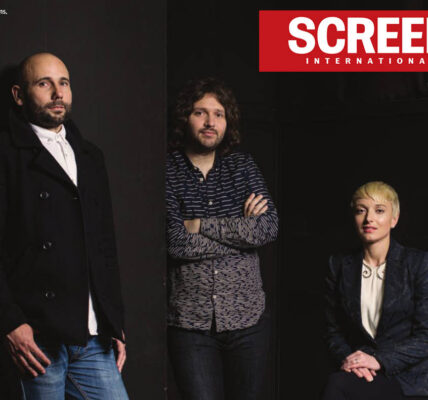The Evolution of Cinema: A Century in Review
The world of cinema has witnessed a remarkable transformation over the past century. From the earliest silent films to the high-tech, blockbuster-driven industry of today, the journey of cinema is nothing short of extraordinary. In this article, we will take you through the evolution of cinema, from its humble beginnings to the dazzling future that lies ahead.
Page Contents
The Birth of Cinema
The story of cinema danatoto in the late 19th century, with inventors like Thomas Edison and the Lumière brothers introducing the concept of motion pictures. Silent films captured the imagination of early audiences, with classics like “The Great Train Robbery” (1903) paving the way for this burgeoning art form. The magic of the silver screen was born, and it was clear that cinema had the potential to become something truly incredible.
The Golden Age of Hollywood
The 1920s and 1930s marked the Golden Age of Hollywood, a time when the film industry experienced unprecedented growth. The birth of the “talkies” with films like “The Jazz Singer” (1927) ushered in a new era of storytelling. Hollywood became the epicenter of the global film industry, churning out classics like “Gone with the Wind” (1939) and “Casablanca” (1942). The glamour of Hollywood and the allure of the silver screen became synonymous with American culture.
Technological Advancements
The mid-20th century brought significant technological advancements to the world of cinema. The introduction of color film, widescreen formats, and surround sound transformed the viewing experience. Films like “The Wizard of Oz” (1939) and “Star Wars” (1977) showcased the potential of technology in storytelling. As we moved into the late 20th century, the digital revolution forever altered the way films were made and distributed.
Changing Film Genres
Cinema has always evolved in response to societal and cultural changes. The 1960s and 1970s saw the rise of counterculture and a shift in film genres. Films like “Easy Rider” (1969) and “The Godfather” (1972) marked a move away from traditional narratives and the emergence of a new, edgier cinema. This era also witnessed the rise of independent cinema, with directors like Martin Scorsese and Francis Ford Coppola challenging the status quo.
Iconic Moments
Throughout its history, cinema has been a powerful medium for shaping collective memories. Iconic moments in film, such as the shower scene in Alfred Hitchcock’s “Psycho” (1960) or the “I am your father” revelation in “The Empire Strikes Back” (1980), have left indelible marks on our cultural consciousness. These moments continue to be celebrated and parodied, reminding us of the profound impact of film on our lives.
Impact of Technology
As we moved into the 21st century, digital technology transformed every aspect of filmmaking. CGI (Computer-Generated Imagery) became a game-changer, allowing for the creation of fantastical worlds and characters. Directors like James Cameron, with “Avatar” (2009), pushed the boundaries of what was possible on the big screen. The film industry also adapted to the rise of streaming platforms, fundamentally changing how we consume content.
Milestones and Achievements
The evolution of cinema has been marked by numerous milestones and achievements. The Academy Awards, which began in 1929, have recognized excellence in the industry for decades. Groundbreaking films like “The Lord of the Rings: The Return of the King” (2003), which won 11 Oscars, demonstrated the potential for cinematic excellence and innovation.
The Future of Cinema
As we stand on the cusp of a new era, the future of cinema is filled with promise. Advances in virtual reality (VR), augmented reality (AR), and immersive technologies are poised to take the cinematic experience to new heights. The influence of international cinema, independent filmmakers, and diverse storytelling is growing, leading to a more inclusive and expansive industry.
In conclusion, the evolution of cinema over the last century is a testament to human creativity, innovation, and storytelling. From the early days of silent films to the digital spectacle of today, cinema has continually adapted and thrived. The journey through Hollywood’s Golden Age, technological revolutions, changing film genres, and iconic moments has shaped the cinematic landscape we know today. With the promise of even more groundbreaking advancements, we can only imagine what the next century of cinema will bring.
Tag: Cinema History, Film Industry, Technological Advancements, Movie Milestones, Future of Filmmaking
In this century in review, we’ve seen cinema evolve from its humble beginnings to the digital and immersive future. Join us on this journey through the past, present, and future of the silver screen, where storytelling knows no bounds.











